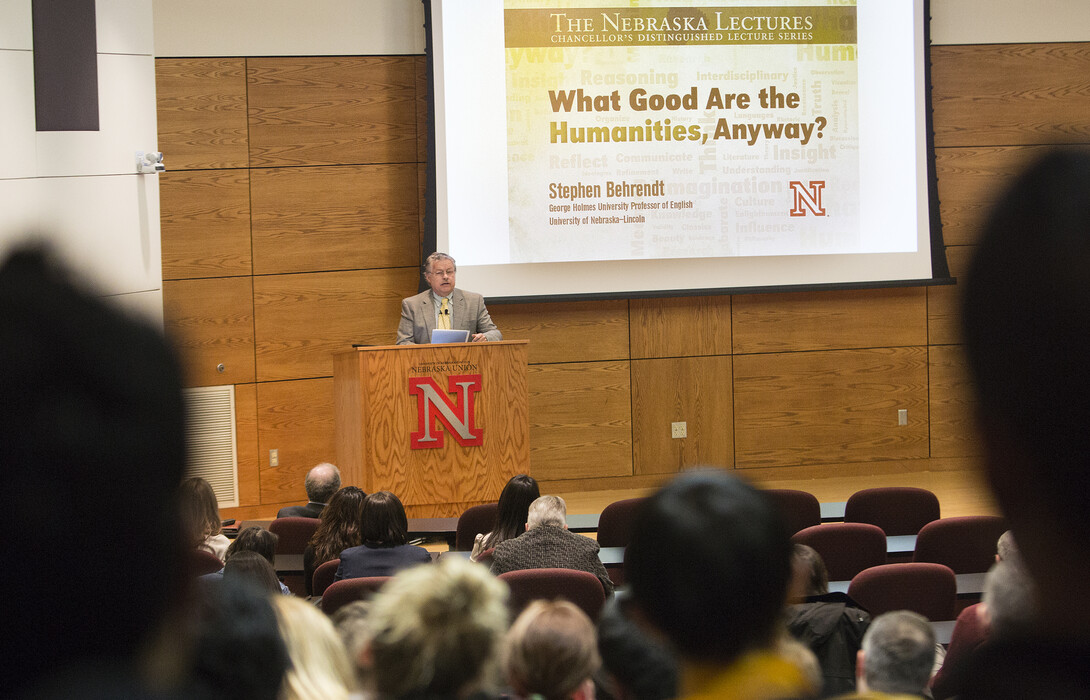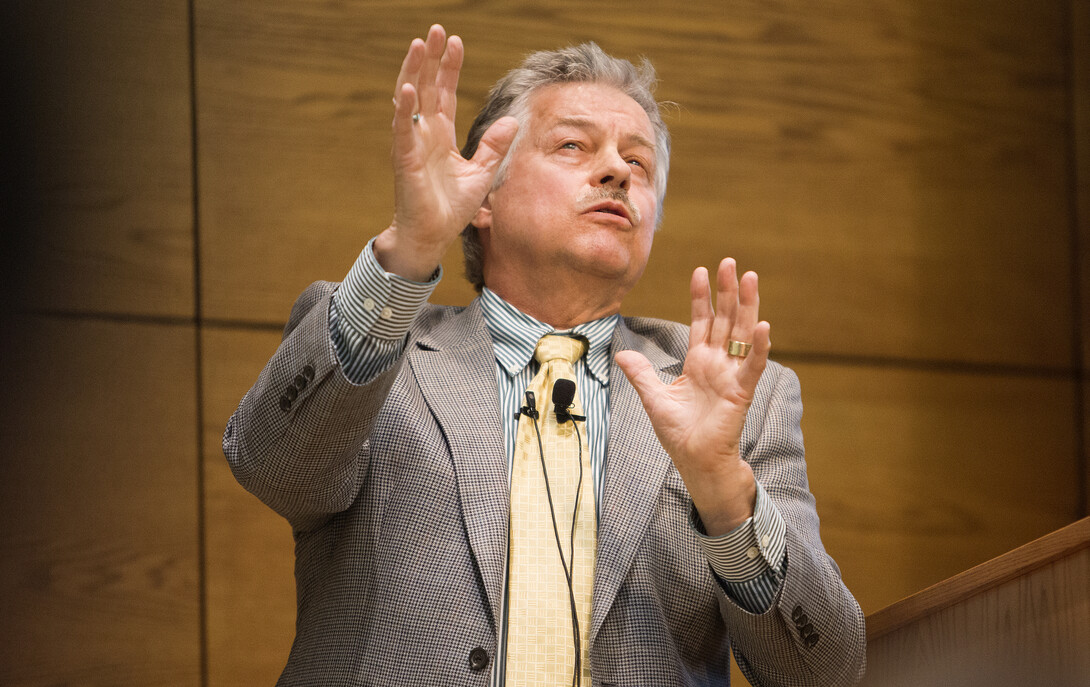
What are the humanities good for?
Stephen Behrendt, George Holmes Professor of English, tackled that question and the “war on humanities” during the Nebraska Lecture on April 16.
The lecture, sponsored by the UNL Research Council, the Office of the Chancellor and the Office of Research and Economic Development, is offered once a semester to bring together the university community with the greater community in Lincoln and beyond to celebrate the intellectual life of UNL by showcasing faculty excellence in research and creative activity.
With the aid of fellow humanists centuries-old and current, Behrendt argued that while the impact and need for the humanities cannot be measured in any quantifiable way, their existence and the scholarship associated with them is intrinsically connected to everything around us – because it is the study of what makes us human.
“It’s the duty of the humanities to teach us about ourselves as moral, ethical and spiritual citizens,” he said. “(The humanities) make us not just better citizens, but also more humane ones.”
Behrendt said the humanities challenge us to think critically and to use our imaginations, which is why humanities shares what he called a “deep kinship” with natural sciences.
“The inevitable product of the sort of troubling questions that the humanities typically ask is critical thinking, which while it may both employ and rely upon empirical science nevertheless involves a large measure of imagination and speculation of ‘What if?’” he said.
And without imagination, questions are not asked.
“Albert Einstein declared that ‘Imagination is more important than knowledge. For knowledge is limited, whereas imagination embraces the entire world, stimulating progress, giving birth to evolution. It is, strictly speaking, a real factor in scientific research.’”
The lack of thinking critically and using our imaginations, Behrendt told the Nebraska Union Auditorium audience, also breeds mediocrity in society, because no one is forced to think for themselves. We approach the world with an attitude of “this is how things are,” instead of asking how we could make things better.
“The greatest threat to all of us is posed by the decline of that sort of questioning, probing critical thinking – precisely the sort of oppositional thinking that challenges our habit of lazy thinking, or no thinking at all,” he said.
Behrendt quoted several 19th-century writers who lamented on the materialism developing in society. That is no truer than today, he said, when we measure what is good for us by how much wealth we can accumulate and we measure education in standardized tests and whether degrees will afford those attaining them “good” jobs.
“There’s a general sense that the humanities are not very useful: that they don’t contribute in any clear measurable way toward objective goals like job opportunities, better paychecks and career advancement,” Behrendt said.
This argument, he said is simply untrue, and that another consequence of this line of thinking “is a diminished and significantly narrowed – although increasingly specialized – education.”
Behrendt closed by saying the humanities help us to “both see and measure, and to imagine and create.”
“They don’t just help us to think, they require us to do so,” he said.








